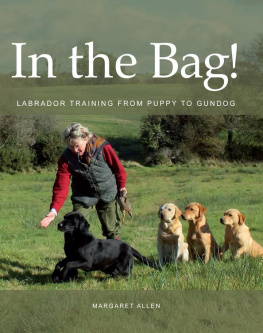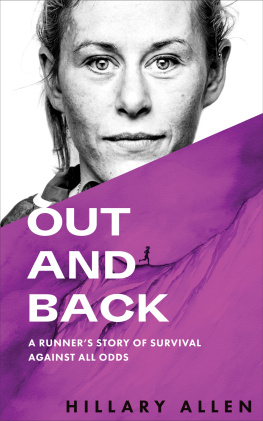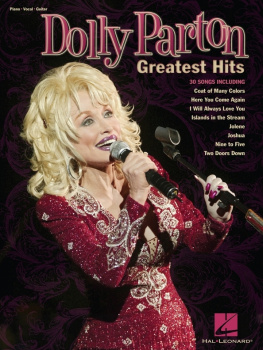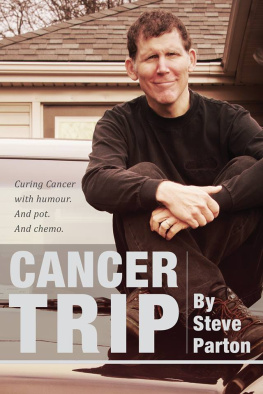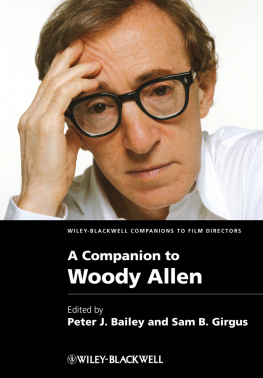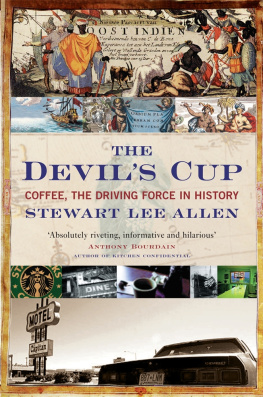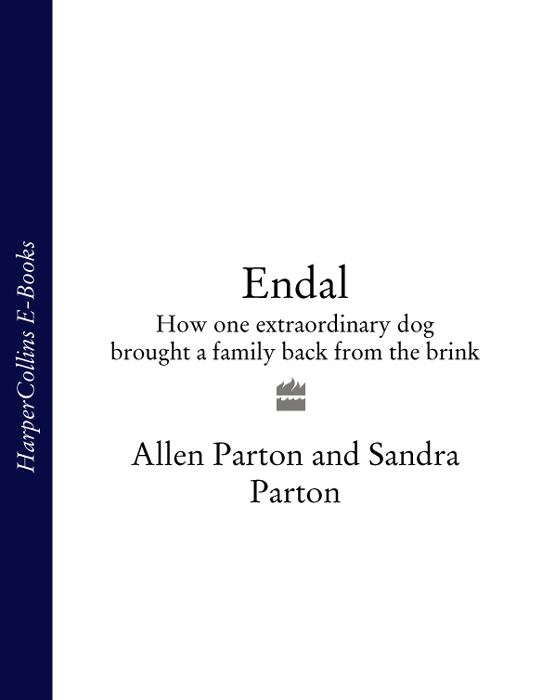
ALLEN & SANDRA PARTON
ENDAL
How one extraordinary dog brought
a family back from the brink
WITH GILL PAUL

T o Liam and Zoe.
Also, to the 900,000 servicemen and women in Britain today who were injured serving Queen and country, and in memory of all those who didnt return.
During the summer of 1999, a News of the World reporter in Havant, Hampshire, saw something hed never seen before: a dog using a cashpoint machine. Right in front of him, a yellow Labrador inserted a card into the slot, waited while its owner, a sandy-haired man in a wheelchair, keyed in the PIN number, and then it carefully removed the card and the cash. The reporter blinked hard, wondering if he was hallucinating.
When he spoke to the man, a disabled ex-serviceman called Allen Parton, he found out that the dogs name was Endal and that using a cashpoint machine was just one of his many amazing skills. The News of the World article that followed seemed to fire the readers imagination and soon many other newspapers, magazines, TV and radio shows were vying to find out about this exceptional dog.
They only learned a small part of the story, though. They thought they had found a performing dog, while in fact Endal was a one-off phenomenon, an unsung hero who had a profound talent for helping people in need. It would be a few more years before the full story emerged.
CHAPTER ONE
Allen
I opened my eyes. The room was fuzzy and the bright overhead lights were surrounded by blurred haloes. Something hard and uncomfortable was round my neck, digging into me.
Are you all right, Allen? Glad to see youre with us again. The voice was cheerful. A woman. I could make out her dark shape by the bed.
Where am I? I tried to say, but my throat felt tight and the words came out like a harsh coughing sound.
Youre in Haslar Royal Naval Hospital in Gosport. You had an accident, remember? In the Gulf?
The Gulf of what? Gulf of Mexico? Gulf of Bothnia? Persian Gulf? Didnt this woman know how many gulfs there were in the world? And then I remembered. Im in the Navy. Im a Chief Petty Officer. Ive been serving in the Gulf War.
You flew back from Dubai overnight and got here this morning. You must be tired after the journey.
I struggled to sit up and the nurse took my arm to help. I grabbed at the plastic collar round my neck.
Better leave that for now until youve been checked over, she said.
I wanted to ask when I would be seeing a doctor, but my mind went blank on the word doctor. What were these people called again? The ones with stethoscopes, who told you what was wrong with you?
Medical ? I stuttered, then a compulsive twitch made my shoulders shudder.
She answered for me: A doctor will be round to see you shortly. Do you want to have a wash first?
I nodded yes, and swung my legs round to put my feet on the floor. Everything about the way I was moving was odd and unconnected. My body felt as though it belonged to someone else and I was struggling to control it. What was going on? I leant on the bedside cabinet to push myself up and noticed there was no sensation in my hand or arm, only a kind of pins and needles.
The toilet is this way, the nurse pointed. I think Id better come with you.
No! I waved her away rudely and forced my left foot to take a step forwards, then followed with the right. I had to think consciously about each step, willing my feet to move. This was very strange.
In the bathroom, I pushed the door shut and leant against it, breathing heavily with the effort of crossing the room. There was a mirror opposite so I lurched across to peer into it.
I looked more or less the same: a bit tired maybe, but otherwise OK. There was a large bruise on my temple that felt tender when I pressed it. The neck collar was grubby, as though Id been wearing it for some time.
I splashed water on my face, trying to remember what had happened and why I was there. Id been in an accident in the Gulf, she said. What kind of accident? Nothing at all came back to me. I must have had a bump on the head. That would explain the bruise. Well, it would all come back later, I decided.
When I emerged, a doctor came over to watch me walking across the ward. That looks like a bit of a struggle, he said. How are you feeling?
Strange, I slurred.
Can you remember your name?
Of course I could. Whom did he think he was talking to? Chief Petty Officer Parton, I barked out, the words sounding all mangled and muddled.
And the name of your ship?
I opened my mouth to reply and realized I had no idea. It had gone. I shook my head blankly.
Do you know what age you are?
I racked my brains. My mind raced back over countries Id seen, ships Id sailed on, weapons systems Id helped to design, but I couldnt think what age I was.
Missiles, I said, trying to communicate to him that that was my job.
He nodded, and then guided me to the bed where he began to examine me, taking my blood pressure, shining a torch in my eyes, pricking my arm for blood. It hurt. Why couldnt he have done it on the right side where I seemed to have no feeling?
Whats happened? I asked eventually.
We think your brain has had a traumatic injury. Theres no damage to the skull. Its all internal. He made some notes on his chart, then folded his arms. I dont think there would be any point operating. We have to wait till the inflammation dies down and well see what happens next.
I was irritated. Just do your job, I thought. And get me back to work. I havent got time to sit around here for weeks on end. My men need me.
The staff nurse will give you something for the pain. Take it easy now. He turned and walked off.
I blinked. Yes, there was pain. My head and neck were aching. I let the nurse help me back on to the bed and swing my feet up for me.
Lunch will be round in a bit, she said. Then your wifes coming to see you later.
I stared at her blankly. I had a wife? That was news to me.
She frowned. You dont remember, do you? Her names Sandra. Youll know her when you see her. Shes been very worried about you.
She left me to digest that news. I lay back on the pillows trying to trigger my memory. Wife. Wedding. Married. I was married. I could remember that it was a good thing to be married. You were in love, and you looked out for each other. But I had no memories of my wife at all.
And then visiting hour came, and a very attractive woman with dark hair and a curvy figure was hurrying across the room. I peered hard as she came into focus. She was definitely heading towards me. It must be her.
Allen, she said. Oh my God. She kissed me and looked into my eyes. How are you feeling?
And I thought she seemed like a nice person, but she was a complete stranger to me. I didnt remember ever seeing her before, never mind marrying her. I had no feelings for her whatsoever. Inside my head there was a vast fuzzy blankness.
CHAPTER TWO
Sandra
A llen sailed off to the Gulf in April 1991, leaving me at home to look after our two children: Liam, aged six, and Zoe, aged five. It was always hard when he went away but after seven years of marriage I was beginning to get used to it. It goes with the territory when youre a naval wife. However, this was the first time since Id met him that hed been posted to a war zone, and although the fighting was over and Saddam Husseins troops had been chased out of Kuwait, I was still nervous. Every time I read news stories about random shootings, friendly fire incidents or that missile that hit a military base in Saudi Arabia, a knot tightened in my stomach.
Next page


